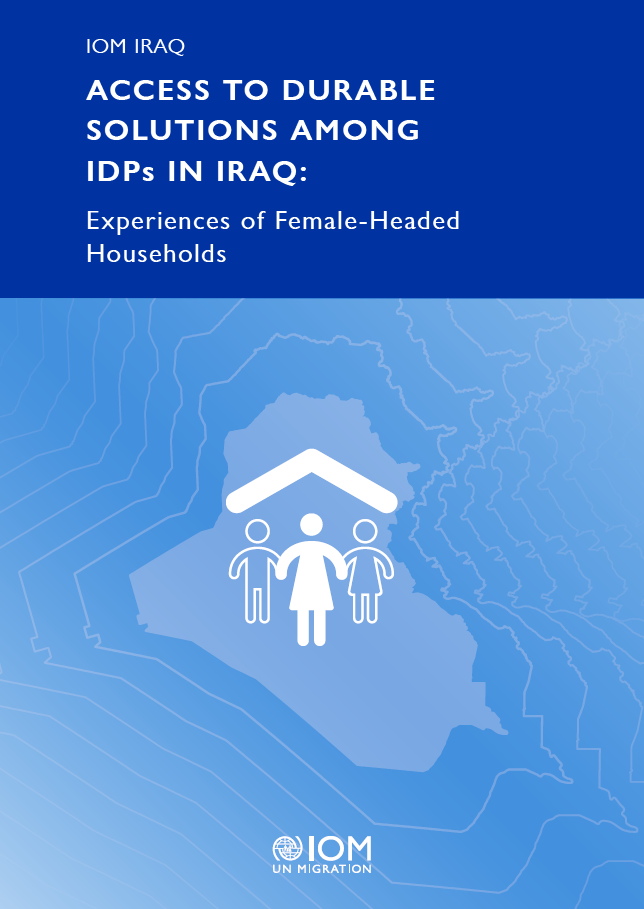ACCESS TO DURABLE SOLUTIONS AMONG IDPs IN IRAQ: Experiences of Female-Headed Households
Access to Durable Solutions Among IDPs in Iraq: Experiences of Female-Headed Households explores life in displacement of the subset IDP families in the “Access to Durable Solutions Among IDPs in Iraq” panel study conducted by IOM Iraq and Georgetown University. The study found that by early 2020, nearly five years after being displaced, female-headed households are more likely to still be in displacement than male-headed households. To meet their basic needs, female-headed households reduce food and other expenses, and borrow money from family and friends. In addition to loans, they also rely on family, neighbors, and friends for housing, food, other expenses, as well as emotional support, transportation, and child and elder care. In terms of working to help meet their needs, the study found that female-headed households are not likely to enter the workforce because of a relatively high rate of illiteracy. Women with low levels of education express that they lack the skills to work outside the home. Some women expressed they benefited from training programs to augment their ability to earn income. Women also expressed desire for other opportunities, such as microloans, to improve their income. The ongoing study began in 2015 and has followed 4,000 displaced families living outside of camps who were displaced to Basra, Baghdad, Sulaymaniyah and Kirkuk.
